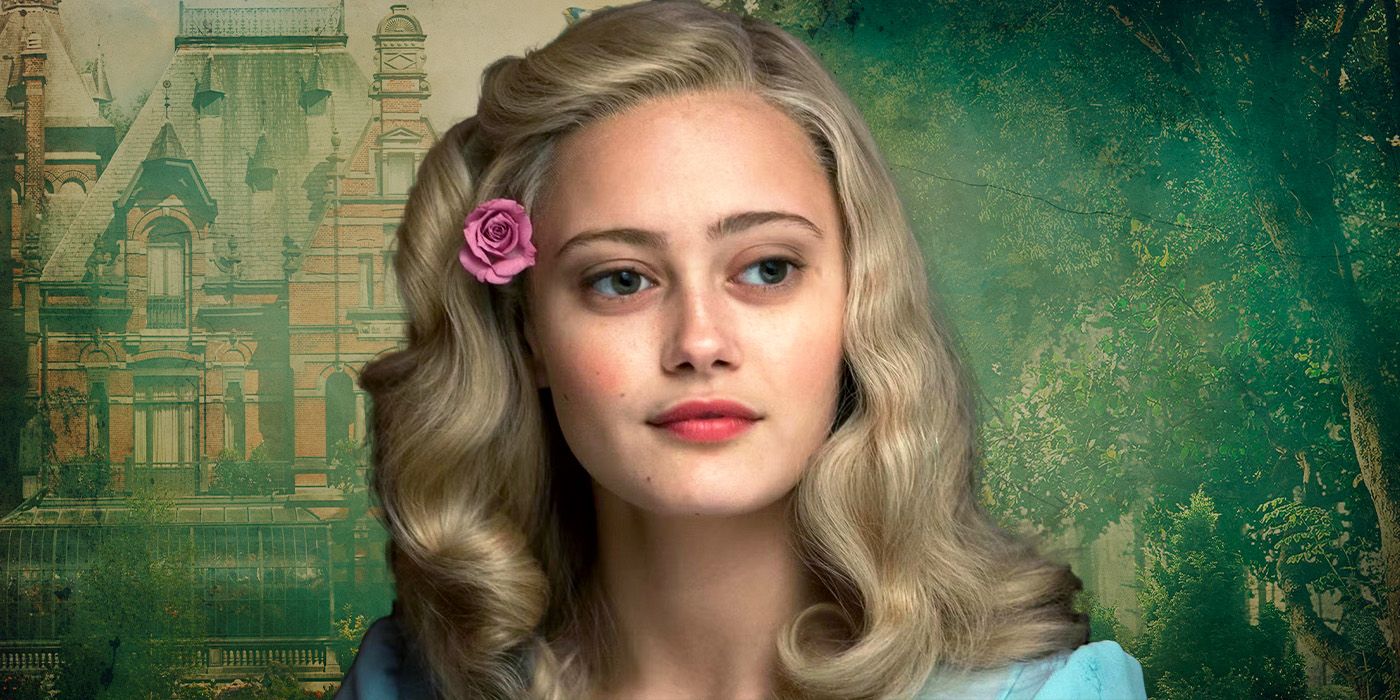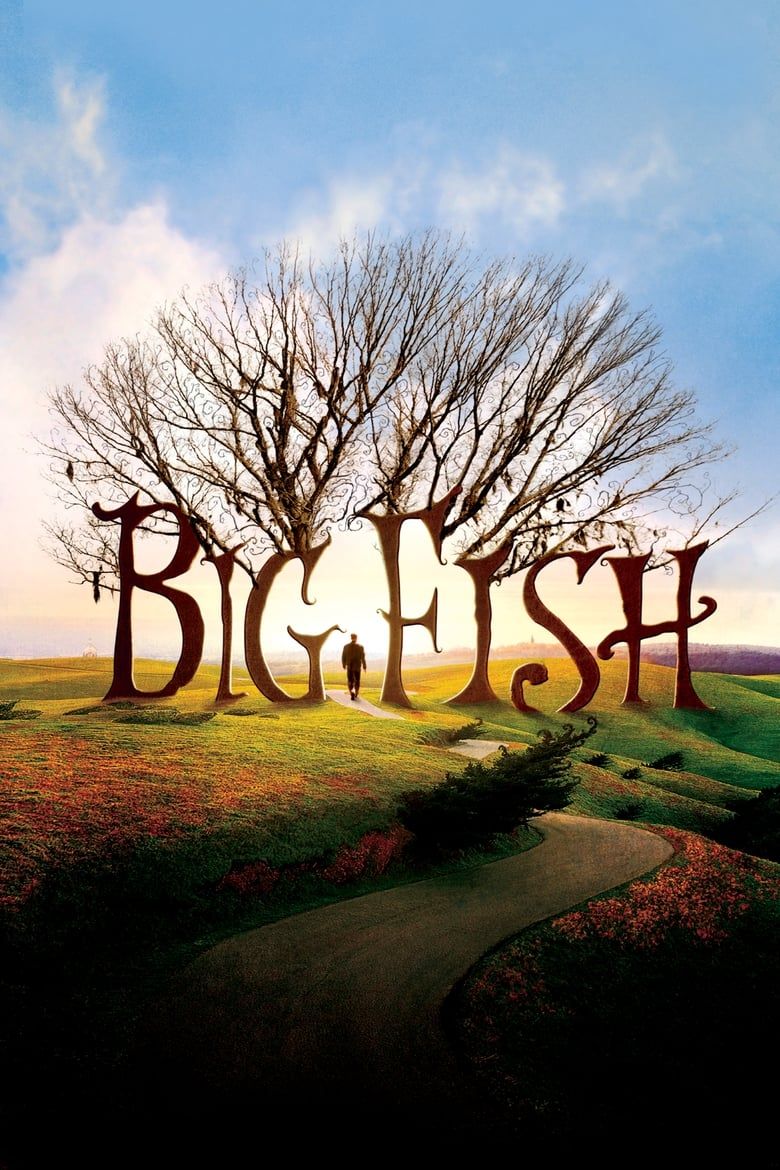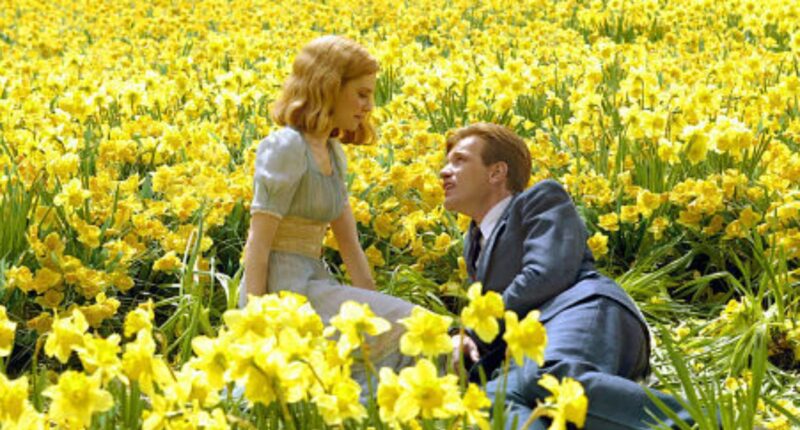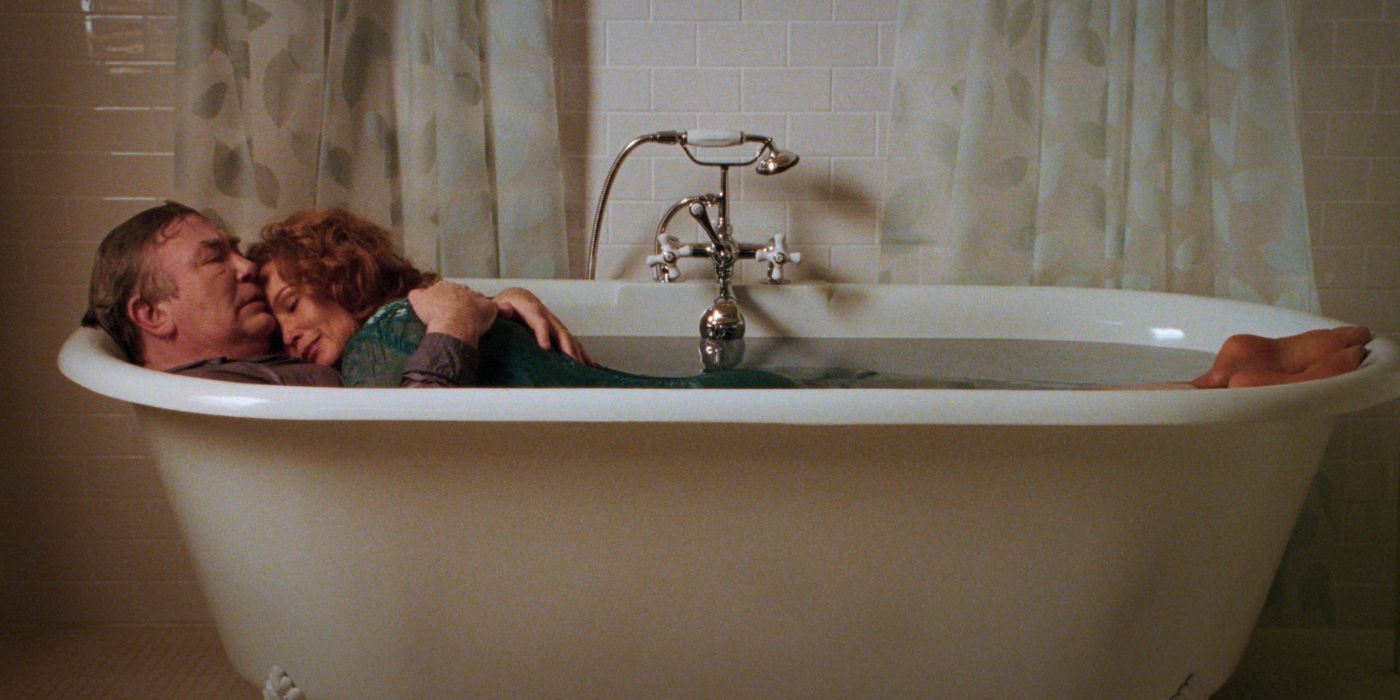Miley Cyrus is the rare talent that is as defined in her adult career as she was during her time as a child star. With an unreal set of pipes and a natural charm, Cyrus’ first big fan base boom came at only 13, with Disney’s Hannah Montana. But her career extends even further back, including a turn in Tim Burton’s masterpiece, Big Fish. The film meets Edward Bloom (Albert Finney) at the end of his life, through the eyes of his son, Will (Billy Crudup). From childhood to the present day, Edward recounts a fantastical, fairy-tale life imbued with the best instincts of Burton’s gothic melodrama and humor. In Edward’s scariest story—and Will’s favorite as a child—he and his friends, including Cyrus’ character Ruthie, head to the house of the glass-eyed witch (Helena Bonham-Carter). Edward’s friends are shaken when they look into her glass eye and see how they’ll die. But not young Edward (Perry Walston).
The glass-eye scene sets the standard for Edward’s lifetime of magical realism and the seemingly genetic love of stories. It also establishes Edward’s almost joyful relationship with the inevitability of death. This is crucial, as so much of the film is Will confusing the jealousy, resentment, and mounting grief he feels for his father as hatred of those stories. His cool, logical life as a journalist is built around that lie.
What Is ‘Big Fish’ About?
A rich ensemble of witches, giants, and ringmasters fills the distance between Will and his father. Steve Buscemi is Norther Winslow, a terrible poet and former criminal who lives in the picturesque but oppressive town of Spectre. Amidst Burton’s caricatures, Buscemi’s knack for straightforward eccentricities is extra endearing. Danny DeVito is Amos Calloway, a ringmaster by day and werewolf by night, whose circus is as shady as it is vibrant. Bonham-Carter doesn’t just lend her subtle quirks to the one-eyed witch. She also plays Jenny, a resident of Spectre who falls in love with Edward at first sight and pitifully yearns for him for her whole life.

Related
Ella Purnell and Tim Burton’s Forgotten Fantasy Adventure Is Waiting for You on Streaming
Before ‘Sweetpea’ and ‘Fallout,’ Ella Purnell charmed audiences in this lesser-known Tim Burton film.
Anchored in Edward’s dual performance by Ewan McGregor and Albert Finney, Burton melds magical realism with the bare reality of grief, parenthood, and how easy it is to get both of them as wrong as you get them right. That’s ultimately why Will has come to sit at his father’s bedside in his final days—they were three years estranged when his mother gave him the call. He makes the trip with his heavily pregnant wife, Josephine (Marion Cotillard), because he needs his father to finally tell him the truth before it’s his turn to be a parent.
In some ways, Will’s life is shaped by a childhood full of the tall tales Edward spins. Will’s career in journalism is based on the fact-based approach to storytelling. He’s grounding his father’s gift in the reality his father prefers to embellish. Josephine is a photographer, a pursuit as creative as it is truthful. Where Will can be shut off and impatient with his father, Josephine is delighted and charmed. A subtler approach to Burton’s usual heroines, she bears witness to Will’s pain and Edward’s compulsive fancies without ever being caught up in them.
The Love Central to ‘Big Fish’ Brings Out the Best of Burton’s Visual Language
Big Fish is Burton’s least cynical film and the best showcase of his contrasting visual styles. Edward’s stories are hyper-drenched in color, and Will’s present day sits in a muted palette that presses his internal struggle outward. Where Will has Josephine, Edward builds his folklore around his wife and Will’s mother, Sanda (Jessica Lange). Through Edward’s eyes, Sandra is compelling. In the past, Alison Lohman’s winsome smile felt worth the circus schemes and grand gestures it took for Edward to marry her. In the present day, Lange keeps Sandra charming but self-assured; Edward’s deep love for her is reflected in the film’s most beautiful compositions—fields of yellow daffodils, frozen time sequences under bright circus lights, and a long-married couple’s embrace in a claw-foot tub. With a love story that defines Edward’s life before Will and a subtle arc for Will that is as good as his father’s, Burton tells a love story not for any one relationship. He tells a love story about storytelling itself.
‘Big Fish’ Shows That We Are the Stories We Tell
By the end of the film, Will finds the center point of his father’s embellishments and the genuine people who inspired his father’s stories. As the film—and Edward’s grip on life—winds down, death seems small compared to the immortality to be found in stories written down, passed on orally, or told to ourselves to remember our loved ones. Burton lets loose some of his darker themes and allows Will to embrace the cycle his father left him, rather than be forced to break it. Big Fish says that stories aren’t just important to us, but that we are our stories. And the film truly makes you believe it.

Big Fish
- Release Date
-
December 25, 2003
- Runtime
-
125 minutes










